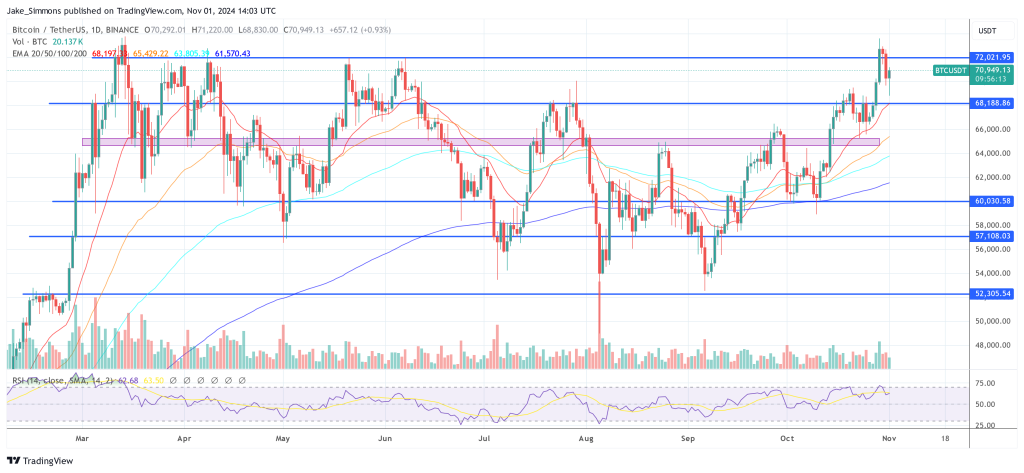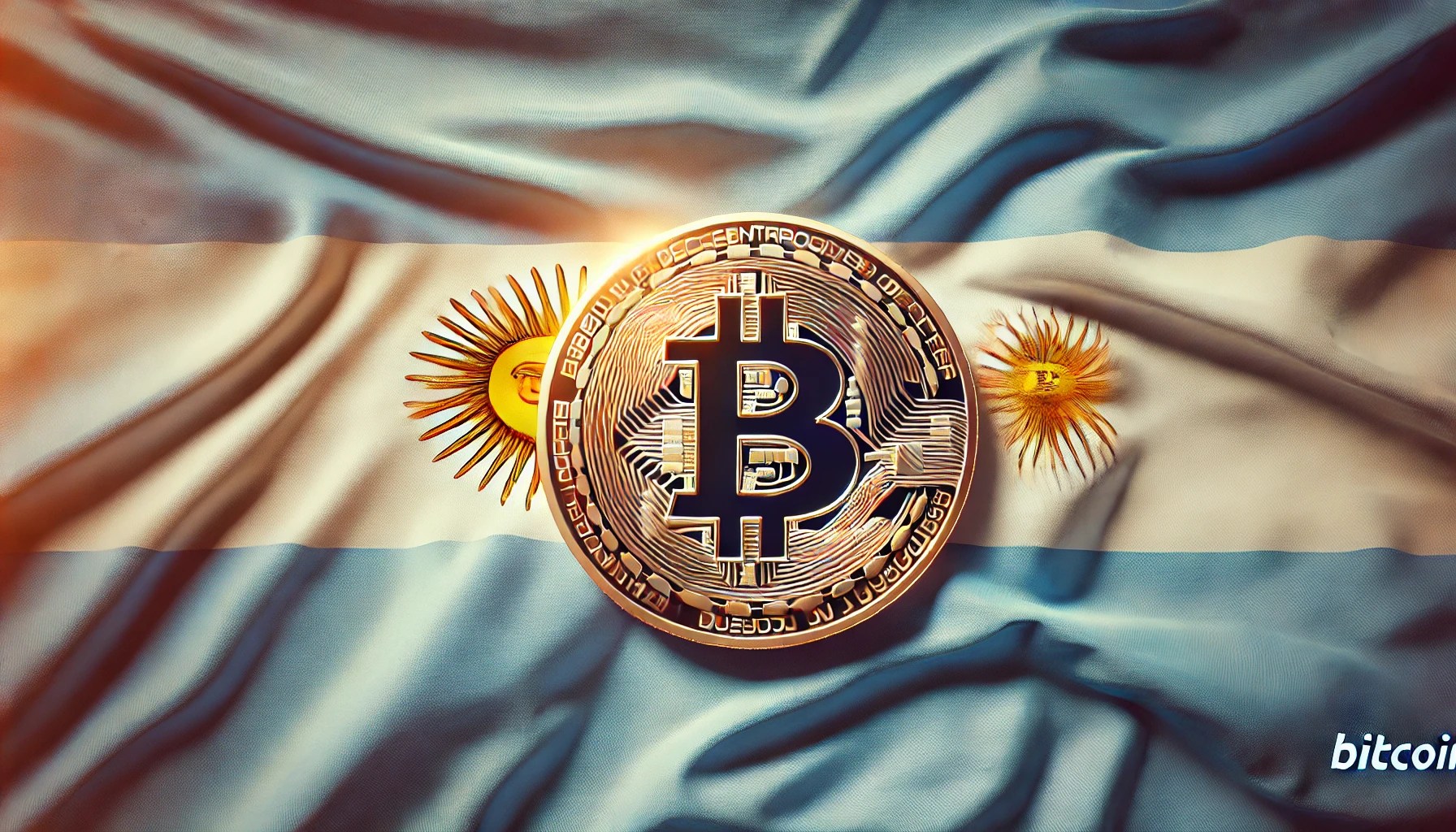The Central Bank of Argentina (BCRA) has unveiled a unique art exhibition at its Héctor Carlos Janson Historical and Numismatic Museum with Bitcoin in the spotlight. The exhibition, titled “Art, Artificial Intelligence and the Future of the Economy,” marks the first instance globally where actual destroyed currency from various nations is showcased alongside operational Bitcoin miners within a central banking institution.
Argentina’s Central Bank Mines Bitcoin
The innovative display, curated by Argentine artist Alberto Echegaray Guevara, integrates tangible elements of obsolete paper money with the dynamic presence of Bitcoin and Ethereum mining operations. “We have developed the exhibition together with the Central Bank. It tries to show different types of currencies. I have gone to more than 17 central banks in the last twelve years, where I have destroyed money. The message has to do with the disappearance of paper money and the new financial systems, which are more linked to technology,” Infobae, an international Argentine online newspaper, cites Echegaray Guevara.
The artist emphasizes the shift towards decentralized financial systems intertwined with artificial intelligence. “For the first time we are going to find in a museum of a Central Bank, Bitcoin and Ethereum coins. What I want to tell is where financial and monetary systems are going, which are heading towards decentralized systems, which have a close link with artificial intelligence,” he stressed.
Echegaray Guevara, who identifies himself as a crypto-artist, destroyed currencies from 17 different central banks, including significant amounts such as a million Swiss francs, a million euros, a million reais, and 100 million rubles, encapsulating each within transparent spheres.
Despite Argentina’s continued reliance on physical currency, Echegaray Guevara highlighted a notable digital shift in dollar usage: “Although in Argentina still uses a lot of paper money, if we talk about dollars, less than 10% are printed, the rest is completely digital.”
The exhibition not only showcases destroyed physical currencies but also features operational miner hardware that has generated over 250 BTC and 3,000 ETH in more than three years.
Highlighting the prominence of Ethereum, a sphere containing 800 real ETH is signed by Vitalik Buterin, the creator of the blockchain. Additionally, the exhibit integrates works from pioneering generative artists of the 1960s, such as Gyula Kosice, Julio Le Parc, and Miguel Angel Vidal, who initially harnessed computational power for their artistic endeavors.
The inauguration ceremony, attended by Santiago Bausili, the President of the Central Bank, alongside government officials, prominent Argentine collectors, and key figures from the crypto sector, signifies the event’s importance. “This exhibition seeks to lead visitors to reflect on the transition process from an economy centered on physical money to one where cryptocurrencies and digital assets are beginning to gain ground,” stated the organizers.
Set to run until March 2025, the exhibition aims to become a landmark in both the artistic and financial domains.
The unveiling has elicited significant reactions from the global Bitcoin community. Anthony Pompliano, Founder & CEO of Professional Capital Management, commented via X: “The central bank of Argentina opened an ‘art exhibit’ yesterday that includes bitcoin mining equipment actively mining bitcoin. This is the first central bank in the world I am aware of to be openly mining bitcoin. The future is coming very fast.”
Similarly, Patrick Lowry, CEO of Samara AG, shared his insights on X: “Argentina’s Central Bank now has a Bitcoin mining exhibit in its halls. Central banks that embrace Bitcoin may survive. Those that don’t will perish.”
At press time, BTC traded at $70,949.

Featured image created with DALL.E, chart from TradingView.com
www.Asciminerbulk.com


